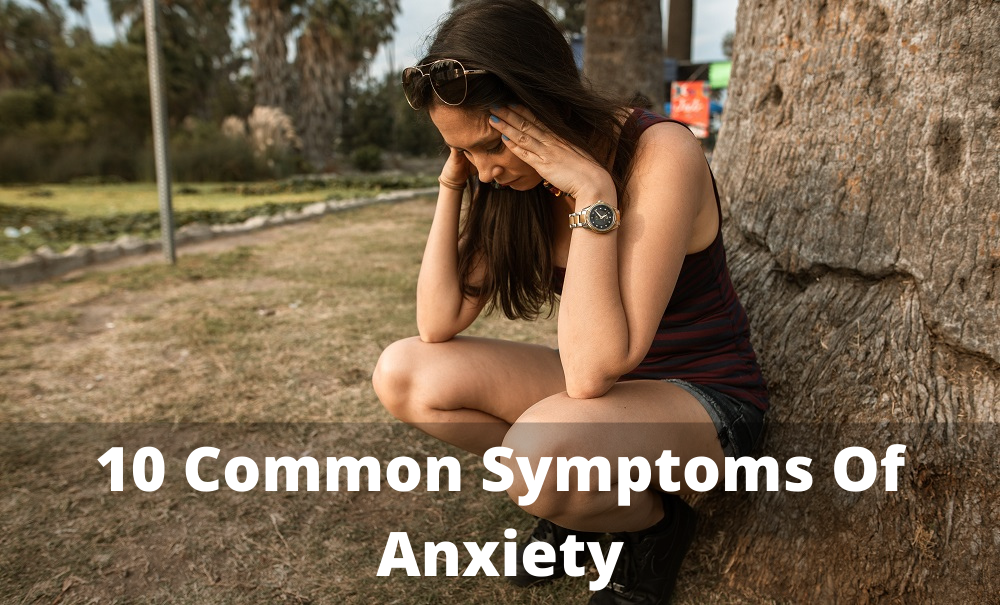
10 Most Common Symptoms Of Anxiety
Introduction
Experiencing occasional anxiety is normal.
However, individuals with anxiety oftentimes have serious, exorbitant and steady stress and fear about everyday situations.
Frequently, anxiety problems include rehashed episodes of abrupt sensations of serious nervousness or fear that reach within minutes (panic attacks).
There is a real risk as this feeling slow down everyday exercise, creates uneasiness and panic. It is hard to control and it really messes up and can last for a long period of time.
You might stay away from places or circumstances to prevent these sentiments. Anxiety might begin during adolescence or the youngster years and proceed into adulthood.
Examples of anxiety problems incorporate summed up uneasiness issues, social nervousness issues (social fear), explicit fears and fear of abandonment. You can have more than one anxiety problem.
Here and there uneasiness results from an ailment that needs treatment. For any type of anxiety disorder you have, treatment can help.
10 Most Common side effects & Symptoms of Anxiety Disorder
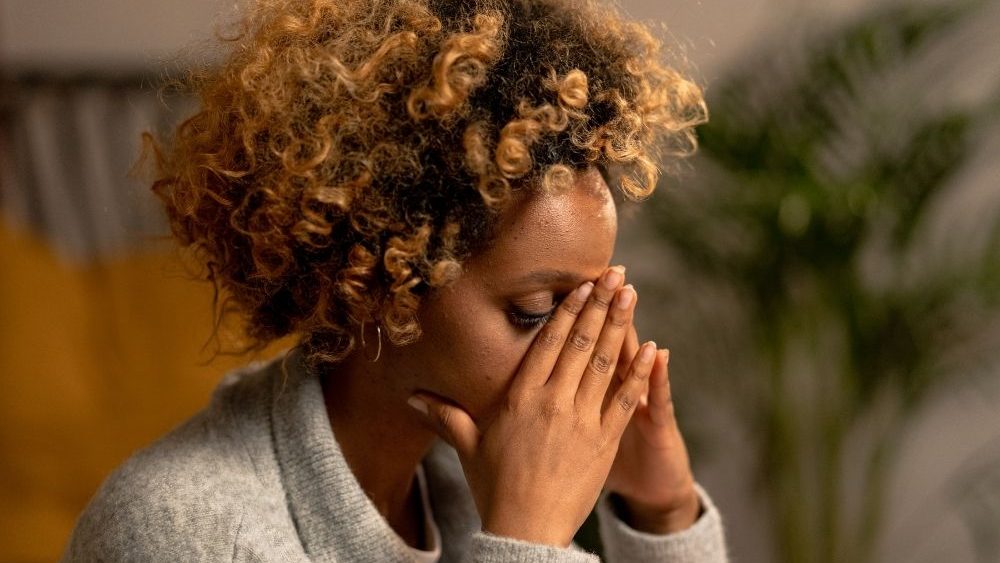
1. Feeling nervous, tense
This is one of the most well-known symptoms of anxiety.
This worrying is lopsided to the triggers and by and large happens in light of normal everyday circumstances. Unreasonable stressing over regular matters is a vital trait of summed up anxiety
the issue, especially if it is that it is serious to obstruct your day by day activity and keeps going pretty much constantly for no less than 6 months.
2. Increase Heart Rate
Anxiety is a natural reaction to danger and is required for people to survive.
A high level of anxiety trigger changes in the body to help get ready for managing dangers and risk, otherwise called the instinctive reaction.
Notwithstanding, assuming you’re living with constant anxiety, your body and psyche are regularly incapable to differentiate between genuine and envisioned risks, and that implies that the instinctive reaction might be ceaselessly dynamic.
One of the principal changes to happen during the instinctive reaction is an increase in heart pulse rate.
3. Having trouble sleeping
An individual with an anxiety disorder may make some intense memories of nodding off or potentially staying unconscious or might have fretful and uneasy sleep.
High degrees of chemicals like cortisol and adrenaline make it difficult to get a decent night’s sleep since your humming body will be unable to loosen up enough to rest.
The hustling considerations that can accompany nervousness are no formula for great sleep either.
It’s not only that nervousness adds to sleep issues, for example, but sleep deprivation can also make you more inclined to uneasiness as well.
4. Experience gastrointestinal issues
Anxiety truly hits the G.I. system hard. Individuals with an anxiety disorder might see general stomach pain, constipation, diarrhoea, or different sorts of G.I. trouble.
A great deal of this might reduce to what specialists call the stomach cerebrum hub, which is a correspondence system between your mind and the intestinal sensory system that oversees your absorption.
This connection is the reason pressure can with such ease mess up your poop. There’s likewise the way that anxiety prompted lifestyle decisions like eating food that disagrees with you or not practising can influence your digestion also
5. Sweating
Swearing is a typical result of anxiety issues.
At the point when your thoughtful sensory system gets actuated, it can impact the perspiration organs fundamentally all around your body.
You have two sorts of sweat organs: eccrine, which covers a large portion of your skin, and apocrine, which is just on body parts that have a lot of hair follicles.
The two sorts of sweat organs can cause an anxiety disorder actuated sweat, however, it’s the smooth liquid from your apocrine organs specifically that might make it smell terrible.
6. Trembling
If you have even found yourself trembling with fear before a major occasion, you realize how your body responds under anxiety.
Ends up, it needn’t bother with an outside trigger like a terrifying show or a significant gathering to begin shuddering like a leaf; shaking and trembling can be a result of anxiety incited chemical floods.
7. Feeling powerless or tired
A persevering sensation of weakness is a common symptom of an anxiety disorder.
The reasons are twofold. First of all, that anxiety actuated by an increase in pressure chemicals can keep you fired up on guard, which can be genuinely depleting.
Be that as it may, there’s an extra convoluting factor: Sleep and uneasiness have a muddled relationship, which carries us to one more regular actual result of anxiety.
8. Trouble Concentrating
Many individuals who experience anxiety report having an inconvenience concentrating.
Some studies proceeded to show that anxiety could irritate one’s functioning memory that is answerable for recovering transient data – this might assist with clarifying the uncommon fall in-person performance often experience during times of uplifted nervousness.
9. Having a feeling of a panic attack
A panic attack causes a staggering, serious impression of fear, which can be incapacitating.
This extreme fear is by and large joined by perspiring, quick heartbeat, windedness, shaking, queasiness, chest snugness and letting go completely or apprehension about biting the dust.
A panic attack might happen in segregation, yet assuming they happen surprisingly or every now and again, they might be an indication of a frenzy issue.
10. Breathing Rapidly
One more common symptom of anxiety is that your breath gets faster as you are presented with an unpleasant or uneasiness-inducing circumstance.
Axiety Treatment Cost in Jaipur
Cost may vary according to the treatment duration and severity of your symptoms. Consult with Dr. Sanjay Jain. To know more about the treatment and cost please fill out this form.
CONSULTATION COST: ₹300
Treatment We Offer
Our goal is to provide the best treatment for mental disorders. He provides the best anxiety disorder treatment in Jaipur. He has experience of 13 years as a psychiatrist. He has work 5 international research projects in Singapore.
Dr.Sanjay Jain has done more than 15 international research studies on various psychiatric disorders.

Dr. Sanjay Jain is a highly qualified and one of the best psychiatrist in Jaipur, India, with over 13 years of experience. He earned his medical degrees from SMS Medical College and Hospital. Dr. Jain is known for his global research work on mental health. He believes in not just using medicine but also educating and working with patients to find the best treatment plan. He was recognized as one of Jaipur’s top psychiatrists in 2020 by threebestrated.com, a trusted US-based ranking company.
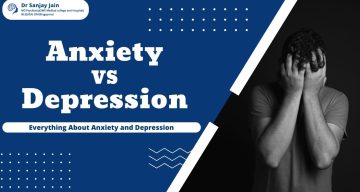
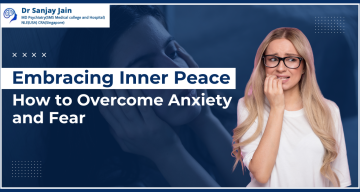

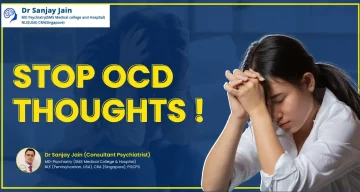
Leave a comment